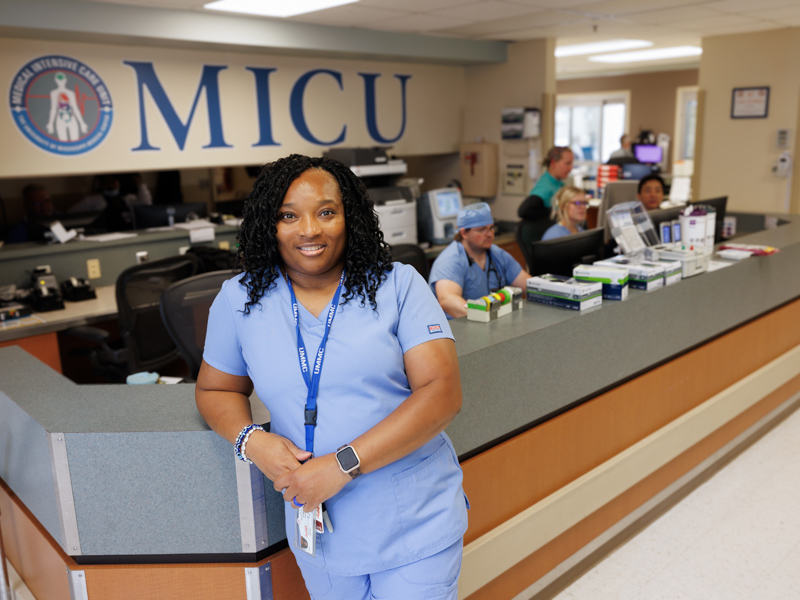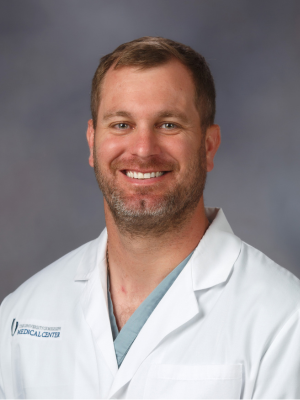Front and Center: Nechole Sullivan

The multiple hands on deck caring for patients in UMMC’s Medical Intensive Care Unit are often aided by an equally capable unit secretary in the Medical Intensive Care Unit who knows a bit about being a patient herself.
“My health has been good since I’ve been a unit secretary, though I still help with patients when they need me,” said Nechole Sullivan, 55, of Gluckstadt, who’s been in the vital support staff role at UMMC since 2020. “There’s times when I’ve helped identify patients who aren’t doing well and we need to grab the code cart.”
Sullivan’s selfless service to the multifaceted tasks she handles each day didn’t happen the easy way.
The Chicago native and mom to four adult children had worked similar roles in ICUs since she was 15 after earning her certification as a licensed practical nurse through Chicago Public Schools. But she did so while living with the effects of lupus, a chronic and often aggressive autoimmune disease that occurs when the immune system attacks healthy tissue.
She was diagnosed in 2008 after the joint pain and fatigue often associated with the disease began getting in the way at work.
“I had been tested in the past for sickle cell and different other things,” said Sullivan, who moved to the Jackson area from Atlanta in 2018 when her husband, a career corrections officer, landed a job in the state. “In my case, having alopecia as part of it was how I was eventually diagnosed.
“Every four to six weeks for a time, I was in and out of the hospital with different issues with my heart, lungs and kidneys. Then in 2011, I was in a coma and on a ventilator for 14 days. It took me four months to walk, talk or eat solid food normally again.”
It was an experience that has shaped how she now lives both her work life and personal life.
“It became mind over matter kind of thing to get the will to fight and beat the disease,” she said. “I decided to move out of the cold climate to another job in Atlanta, and from there I started exercising and eating right. Now, my weight is back to where it ought to be and my medication has progressed to the point where I only take it when I need to.”
Unit secretaries provide patient census and assessment reports, as well as scheduling assistance; in Sullivan’s case currently, that means the evening shift. She also handles patient consents and orders all supplies.
“MICU is full of teamwork, and I love being part of a team,” she said. “I get a lot of gratification and positive energy from it. I love being behind the scenes and doing whatever it is I’m needed to do.”
Keeping a steady ship as of late has meant covering shifts elsewhere, which Sullivan has done effortlessly.

“I often call her the captain of the MICU ship,” said Pate Shackelford, nurse manager in the MICU. “She makes sure the nurses have everything they need to take care of the patients.
“When we had someone out in the other ICU for an extended time recently, Nechole stepped in and has helped her fellow unit members with a smile on her face knowing she’s also helping a friend,” Shackelford said. “And she always brings positive energy to penetrate some of the dark days we sometimes experience in the MICU.”
Memories still fresh of herself in a hospital bed are what helps her harness that energy.
“I’ve always been empathetic,” she said. “But, once I had a near-death experience, it changed me in terms of how I dealt with people and patients. I was once laid up in a hospital bed with a ventilator and nasogastric tube and have someone have to do everything for me. That experience makes you able to put yourself in a patient’s place and understand what they’re going through.”


